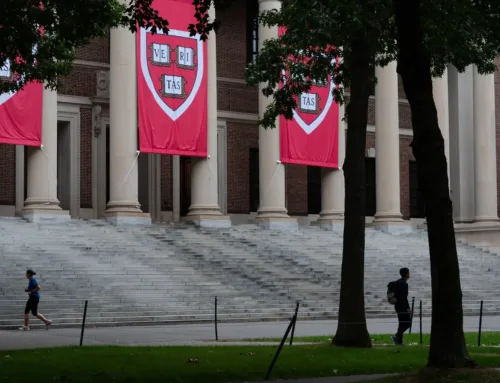What Do Schools Look for in a Transfer Application?
Introduction:
Transferring from one college to another is a significant decision that requires careful consideration and a well-crafted application. Whether you’re moving from a community college to a four-year university or seeking to get into the Ivy League, understanding what schools look for in a transfer application is crucial. This article explores the key factors that admissions committees typically consider when evaluating transfer applications.
- Academic Performance:
One of the primary factors that schools assess in a transfer application is the applicant’s academic performance. A strong academic record not only demonstrates a commitment to learning but also indicates the potential for success in a new academic environment. Admissions committees typically review your college transcripts, paying attention to your overall GPA as well as performance in major-related courses. Consistent academic excellence is likely to make a positive impression on the admissions team. In other words, you don’t need a 4.0, but particularly when talking about a “Top 20” or Ivy League school (my speciality) you do need to have the highest grades you can get.
- Reason for Transfer:
Clearly articulating your reasons for seeking a transfer is essential in any application. Admissions committees want to understand why you’ve decided to leave your current university and why you believe their school is the right fit for you. Whether you’re pursuing specific academic programs, seeking a different campus environment, or aiming for better opportunities, you want to be transparent and genuine about your motivations, BUT — the Ivy League schools in particular are looking for students who have ACADEMIC or intellectual reasons for transferring. Not liking your roommate, or wanting to be by the beach, or the desire to move from a big city to a more rural area (or vice-versa) is not going to get you in.
Also, try to avoid negative comments about your current or previous institution; instead, focus on the positive aspects that attract you to the prospective school.
- Personal Statement:
The personal statement is your opportunity to present a comprehensive picture of who you are as a student and individual, and is THE most important part of your transfer application. Most schools now also have 4-5 supplemental questions as well, on top of the main transfer essay. Use this space to discuss your academic and personal journey, highlighting any challenges you’ve overcome and the lessons you’ve learned. Clearly convey your academic and career goals, and explain how the prospective school aligns with your aspirations. This is also a chance to showcase your writing skills and make a memorable impression on the admissions committee.
- Letters of Recommendation:
Letters of recommendation play a crucial role in the transfer application process. They provide insights into your character, work ethic, and potential for success in a new academic setting. Select recommenders who can speak to your academic abilities, personal qualities, and achievements. These individuals should include professors or coaches who know you well and can provide a positive and detailed recommendation. Ensure that your recommenders are familiar with the transfer process and the specific qualities the admissions committee is likely to look for, and you never want to tell the professor anything negative about the school you’re leaving (as it is obviously where they work!) instead, you want to focus on why the new school would simply be a better fit for you.
- Extracurricular Involvement:
While your primary focus should be on academic achievements, schools also consider your involvement in extracurricular activities. Participation in clubs, sports, volunteer work, or internships demonstrates your ability to balance academic and personal commitments. Highlight any leadership roles or special projects that showcase your initiative, teamwork, and commitment to making a positive impact both inside and outside the classroom.
- Fit with the School’s Culture and Values:
Admissions committees also assess whether your values, goals, and personality align with the culture of their institution. Research the prospective school’s mission, values, and academic offerings. Clearly express how the school’s environment and resources will contribute to your academic and personal growth. Demonstrating a genuine interest in the school’s unique attributes can significantly enhance your application.
- Any Additional Requirements:
Some schools may have specific requirements or supplemental materials for transfer applicants. These could include a portfolio for certain art programs, additional standardized test scores, or a writing sample. Pay close attention to the application instructions and ensure you fulfill all the requirements. Submitting a complete and well-prepared application package demonstrates your attention to detail and commitment to the transfer process. You always want to take the opportunity to tell a school more about yourself. Always.
Conclusion:
Successfully navigating the transfer application process requires a thoughtful approach and attention to detail. Admissions committees carefully evaluate academic performance, reasons for transfer, personal statements (transfer essays), letters of recommendation, extracurricular involvement, fit with the school’s culture, and any additional requirements. By presenting a comprehensive and compelling application that addresses these key factors, you can enhance your chances of a successful transfer and embark on a new chapter of academic and personal growth. Remember, each school has its unique criteria, so tailor your application to showcase how you are an ideal fit for the institution you aspire to join!
And, it IS possible to get into the Ivy League.
Want more help with your college or Ivy League transfer applications? Contact me today for a free consultation at www.IvyCollegeEssay.com and get into the school of your dreams!
Check out my other blog articles, as well:
- How to Get Off Harvard’s Waitlist
- Want to Transfer to an Ivy League College — There’s Still Hope!
- The Best Ivy League College Admissions Blog
Or contact me here!






